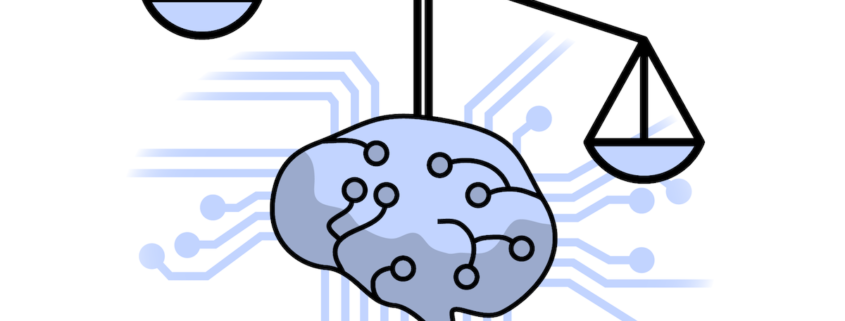Special Edition Blog Series on PhD Abstracts (Part V)
This post is a continuation of the blog post series on PhD abstracts. You can find the first part of the series here.
Armend Duzha: Data Management and Analytics on Edge Computing and Serverless Offerings
 This research will propose a new approach to protect against risks related to personal data exploitation, drawing a methodology for the implementation of data management and analytics in edge computing and serverless offerings in considering privacy properties to modulate the prevention of risks and promotion of innovation. In addition, it will establish AI-driven processes to increase the user’s ability to define in a more accurate way both his offerings in edge computing environments and the data management and analytics as regards the protection of her/his privacy; draw the architecture in terms of data governance and analytics linked with the resource resources management on such dynamic environments.
This research will propose a new approach to protect against risks related to personal data exploitation, drawing a methodology for the implementation of data management and analytics in edge computing and serverless offerings in considering privacy properties to modulate the prevention of risks and promotion of innovation. In addition, it will establish AI-driven processes to increase the user’s ability to define in a more accurate way both his offerings in edge computing environments and the data management and analytics as regards the protection of her/his privacy; draw the architecture in terms of data governance and analytics linked with the resource resources management on such dynamic environments.
Christos Magkos: Personal Health Information Management
Systems for User Empowerment
I n the era of immense data accumulation in the healthcare sector, effective data management is becoming increasingly relevant in two domains: data empowerment and personalisation. As healthcare shifts towards personalized and precision medicine, prognostic tools that stem from robust modeling of healthcare data, while remaining compliant with privacy regulations and the four pillars of medical ethics (Autonomy, Beneficence, Non-maleficence and Justice) are lacking. The following thesis assesses the principles that the design of health data storage and processing should adhere to through the prism of personal information management systems (PIMS). PIMS enable decentralized data processing, while adhering to data minimization and allowing for control of data exposure to third parties, hence enhancing privacy and patient autonomy. We propose a system where data is processed in a decentralized fashion, providing actionable recommendations to the user through risk stratification and causal inference modeling of health data sourced from electronic health records and IoT devices. Through an interoperable personal information management system, previously fragmented data which can be variably sourced and present with inconsistencies can be integrated into one system consistent with the EHDS, and as such data processing can proceed more accurately. When attempting to design clinically actionable healthcare analytics and prognostic tools, one of the main issues arising through current risk stratification models is the lack of actionable recommendations that are deeply rooted to pathologies analyzed. We therefore compare whether causal inference models derived from existing literature and known causal pathways can provide equally accurate predictions to risk stratification models when medical outcomes are known. This would allow for explainable and actionable outcomes, as physicians are reluctant to act upon “black box” recommendations due to medical liabilities and patients are less likely to be compliant to unexplained recommendations, rendering them less effective when translated to the clinic. Simulated datasets based on different types of data collected are analyzed according to risk stratification and causal inference models in order to infer potential recommendations. Different methodologies of risk stratification and causal inference are assessed and compared in order to find the optimal model that will function as a source of recommendations. Finally, we propose a holistic model under which the user is fully empowered to share data, analytics and metadata derived from this data management system with doctors, hospitals and researchers respectively with recommendations that are designed to be explainable and actionable.
n the era of immense data accumulation in the healthcare sector, effective data management is becoming increasingly relevant in two domains: data empowerment and personalisation. As healthcare shifts towards personalized and precision medicine, prognostic tools that stem from robust modeling of healthcare data, while remaining compliant with privacy regulations and the four pillars of medical ethics (Autonomy, Beneficence, Non-maleficence and Justice) are lacking. The following thesis assesses the principles that the design of health data storage and processing should adhere to through the prism of personal information management systems (PIMS). PIMS enable decentralized data processing, while adhering to data minimization and allowing for control of data exposure to third parties, hence enhancing privacy and patient autonomy. We propose a system where data is processed in a decentralized fashion, providing actionable recommendations to the user through risk stratification and causal inference modeling of health data sourced from electronic health records and IoT devices. Through an interoperable personal information management system, previously fragmented data which can be variably sourced and present with inconsistencies can be integrated into one system consistent with the EHDS, and as such data processing can proceed more accurately. When attempting to design clinically actionable healthcare analytics and prognostic tools, one of the main issues arising through current risk stratification models is the lack of actionable recommendations that are deeply rooted to pathologies analyzed. We therefore compare whether causal inference models derived from existing literature and known causal pathways can provide equally accurate predictions to risk stratification models when medical outcomes are known. This would allow for explainable and actionable outcomes, as physicians are reluctant to act upon “black box” recommendations due to medical liabilities and patients are less likely to be compliant to unexplained recommendations, rendering them less effective when translated to the clinic. Simulated datasets based on different types of data collected are analyzed according to risk stratification and causal inference models in order to infer potential recommendations. Different methodologies of risk stratification and causal inference are assessed and compared in order to find the optimal model that will function as a source of recommendations. Finally, we propose a holistic model under which the user is fully empowered to share data, analytics and metadata derived from this data management system with doctors, hospitals and researchers respectively with recommendations that are designed to be explainable and actionable.
Aizhan Abdrassulova: Boundaries of Data Ownership: Empowering Data Subjects in the EU.
Striving to find the most effective data governance system in the European Union over time not only  does not lose its relevance, but on the contrary is gaining momentum. One of the frequently proposed models was the concept of data ownership, which, after being abandoned, seemed scientifically unattractive for a while, but now continues to be discussed among legal scholars and policymakers. Today, a fresh perspective on the data ownership is essential, placing the greatest emphasis on personal data ownership in order to empower data subjects and expand their capabilities and control. In this area, the practical side and the improvements that individuals and companies with an awareness of data ownership can get are significant. When it comes to the boundaries of data ownership, first of all it is necessary to look at the existing gaps and problems “from the inside”, and find out what is generally considered problematic for the data subject itself? What are the expectations of the data subjects themselves? What level of control over their data do they consider acceptable and sufficient? Along with efforts to find answers to these pressing questions, there is an obvious need to provide suggestions for improving the level and quality of personal data management, which could be satisfactory for data subjects. The issues of privacy, access to data, as well as the ability to use and benefit from their data by individuals can not be overlooked. In this regard, an analysis of provisions of the Data Act Proposal is to be done, as well as consideration of the data ownership approach as artifact as exchange. Scientific research has been relatively little developed regarding individuals’ perception of the value of their own data, while this provides new opportunities and makes it valuable for the possibility of understanding the views and needs of data subjects.
does not lose its relevance, but on the contrary is gaining momentum. One of the frequently proposed models was the concept of data ownership, which, after being abandoned, seemed scientifically unattractive for a while, but now continues to be discussed among legal scholars and policymakers. Today, a fresh perspective on the data ownership is essential, placing the greatest emphasis on personal data ownership in order to empower data subjects and expand their capabilities and control. In this area, the practical side and the improvements that individuals and companies with an awareness of data ownership can get are significant. When it comes to the boundaries of data ownership, first of all it is necessary to look at the existing gaps and problems “from the inside”, and find out what is generally considered problematic for the data subject itself? What are the expectations of the data subjects themselves? What level of control over their data do they consider acceptable and sufficient? Along with efforts to find answers to these pressing questions, there is an obvious need to provide suggestions for improving the level and quality of personal data management, which could be satisfactory for data subjects. The issues of privacy, access to data, as well as the ability to use and benefit from their data by individuals can not be overlooked. In this regard, an analysis of provisions of the Data Act Proposal is to be done, as well as consideration of the data ownership approach as artifact as exchange. Scientific research has been relatively little developed regarding individuals’ perception of the value of their own data, while this provides new opportunities and makes it valuable for the possibility of understanding the views and needs of data subjects.





